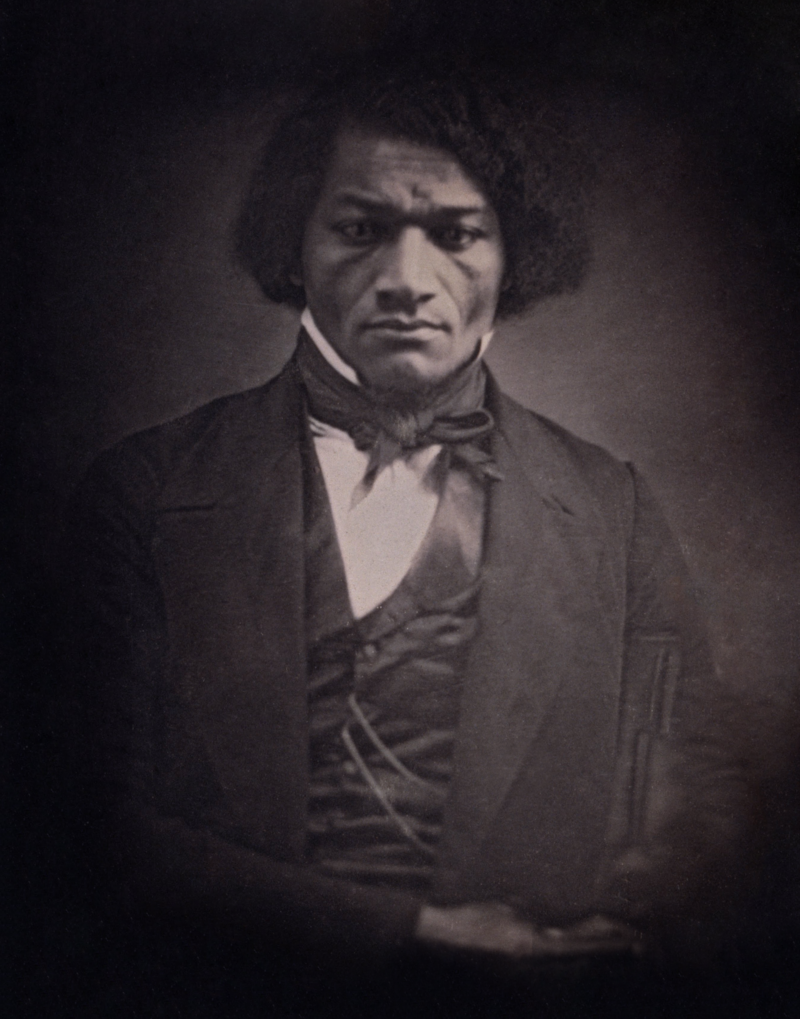Most people in the United States are aware of abolitionist and civil rights activist Frederick Douglass, but few have heard of him in Britain. This demands redress, as Douglass, perhaps the most famous black social reformer of the nineteenth century, travelled to Britain in 1845. Douglass’ experience in Britain is the subject of my PhD, which I started in September 2014 at the University of Nottingham.
Born enslaved in Maryland in 1818, Douglass escaped to Massachusetts in the late 1830s. He was employed by the fiery abolitionist William Lloyd Garrison (leader of the American Antislavery Society), who recognised Douglass’s talent for oratory and advised him to travel to Britain. Douglass spent nineteen months visiting numerous cities from Exeter to Edinburgh, speaking to thousands of people about slavery. He urged the people of Britain to renounce American slavery in all its brutality and hypocrisy and demanded “the press of England blaze with antislavery indignation!”
He urged the people of Britain to renounce American slavery in all its brutality and hypocrisy
Many of his meetings proved popular – for example, a rapturous audience gathered in Essex to hear Douglass speak, and the meeting was so crowded that people were forced outside and the eager amongst them craned their necks to listen through an open window. Reports of his eloquence and civilised bearing directly challenged the stereotype of an ignorant African, and people were impressed by his narrative: he sold 13,000 copies and by March 1847 a third British edition was circulating the country.

Douglass set the stage alight with his powerful oratory and created several controversies that stirred the nation.
Douglass set the stage alight with his powerful oratory and created several controversies that stirred the nation. One of these controversies centered on the newly formed Free Church of Scotland. The Church received thousands of pounds in donations from American slaveholders, which outraged abolitionists on both sides of the Atlantic. Douglass blasted the Free Church by promoting a campaign to “Send Back the Money!” This particular incident showed that American slavery had a direct impact on British society. This antislavery agitation, although not welcomed in all circles, made Douglass nationally famous.Another controversy concerned Douglass’ departure from Britain. In 1847, he purchased a first class ticket on the steamship Cambria, but when boarding, he was denied his berth because of racial prejudice. Furious, Douglass complained to The Times and his treatment triggered a national outrage. Many newspapers decried how a respected abolitionist could face such bigotry on British soil and the controversy reached such a height that a week later, Samuel Cunard himself was forced to publicly apologize. He wrote a short letter to The Times regretting Douglass’ treatment and promised no such discrimination would ever happen again on his ships. A tall promise.
In total, Douglass lectured over 300 times; and in terms of numbers, a speech in South Shields attracted one thousand people; in Edinburgh over two thousand five hundred attended a meeting; and three thousand came to hear him speak in Paisley, to name just a few. In their annual report of 1847 the Garrisonians had received more money and donations for their Boston Bazaar than ever before, and a petition against slavery signed by over 10,000 women in Edinburgh was sent to the United States. Even Charles Dickens was due to attend one of his meetings but had to pull out at the last minute.
He was described as the “famous American negro” or a “celebrated American” who made “a deep impression with his oratory.”
British newspapers across the country marked his death in 1895. He was described as the “famous American negro” or a “celebrated American” who made “a deep impression with his oratory.” These obituaries indicate how Douglass was remembered. He belonged to the canon of the soldiers of antislavery, from Garrison to John Brown, and he was famous because he was regarded as the best ‘representative’ for African Americans. I hope to trace Douglass’ legacy in Britain from 1845 to 1895 over the next few years!








